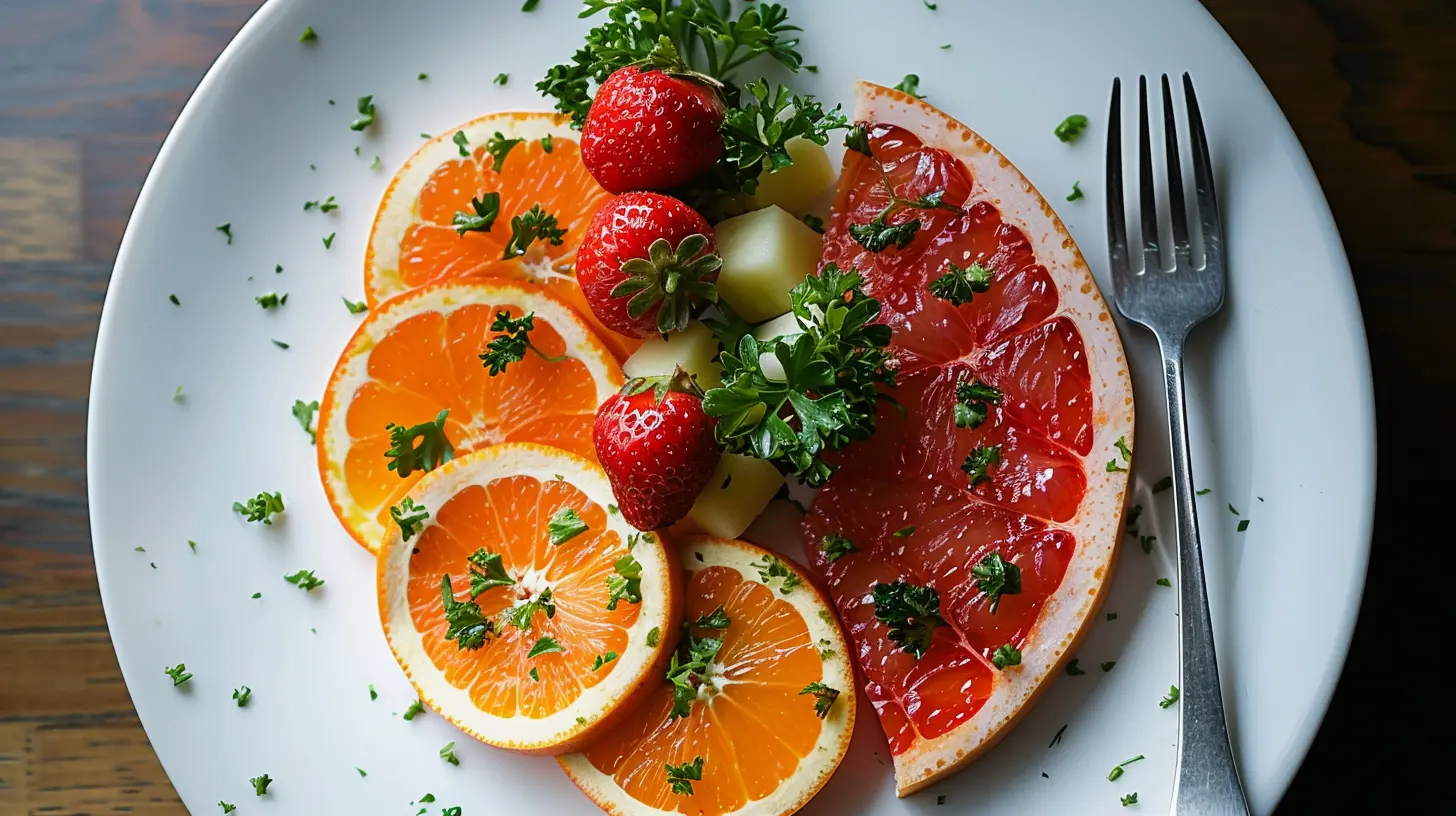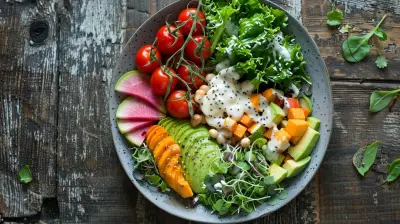Exploring the Benefits of Fasting for Longevity
18 July 2025
Aging is inevitable—but what if we told you there’s a simple, ancient practice that might just slow it down? Yep, we’re talking about fasting. Not a new fad. Not a magical cure. Just a mindful approach to eating (or not eating) that’s been used for centuries. People are now rediscovering fasting for its remarkable benefits, especially how it can help us live longer, healthier lives. Let’s dive deep into fasting for longevity, and see why this time-tested tradition is sparking so much buzz.
What Is Fasting, Really?
Let’s start simple. Fasting is the deliberate abstention from food (and sometimes drink) for a set period. It’s not starvation—there’s a huge difference. Starvation is forced. Fasting is voluntary. It can last a few hours or even days, depending on the method.There are several popular types of fasting today:
- Intermittent Fasting (IF): Cycling between periods of eating and fasting (like 16:8—16 hours fasting, 8 hours eating).
- Extended Fasting: Going without food for over 24 hours.
- Alternate-Day Fasting: Eating every other day.
- Time-Restricted Eating: Limiting meals to a time window, say 12 pm to 6 pm daily.
The fascinating part? Fasting isn’t just about losing weight anymore—it’s being eyed seriously for anti-aging and lifespan-extending benefits.
Why Are Scientists Buzzing About Fasting and Longevity?
Okay, here’s where it gets interesting. Several animal and human studies show that fasting kicks off biological processes that can slow down aging, repair cells, and reduce the risk of age-related diseases.1. Fasting Sparks Autophagy—Your Body’s Internal Clean-Up Crew
Ever wish your body had a "Declutter" button? Fasting might just be that. It triggers a process called autophagy, which is like Marie Kondo for your cells. Literally, your body starts cleaning up damaged parts, removing old cells, and recycling unnecessary components.This cellular cleaning is crucial. Broken cellular components can lead to inflammation and chronic disease over time. Keeping cells “tidy” helps them function more efficiently—and that’s gold when it comes to aging.
2. Insulin Sensitivity Improves—Bye, Blood Sugar Spikes!
As we age, many of us struggle with keeping blood sugar in check. Fasting gives your insulin receptors some much-needed rest. When insulin sensitivity improves, your body can process glucose more effectively. That means:- Reduced risk of type 2 diabetes
- Less fat storage
- Fewer energy crashes
Lower insulin levels are also linked to increased lifespan in various studies. So yeah, keeping insulin in check matters more than we think.
3. Fasting Reduces Inflammation—The True Silent Killer
Inflammation is like a quiet fire that burns in the background, contributing to a range of diseases—heart disease, arthritis, even Alzheimer's. Fasting has been shown to lower inflammatory markers in the body.Imagine pressing a reset button that tells your immune system, “Hey, relax!” That’s pretty much what happens. Less inflammation means your body is not constantly in combat mode, and that can slow the wear and tear of aging.
4. Boosts Human Growth Hormone (HGH)—Your Youth Elixir
Some people chase expensive creams and supplements to stay young, but your body has its own anti-aging potion—HGH. During fasting, your natural production of growth hormone goes up significantly.HGH is known to:
- Aid muscle growth
- Improve bone density
- Support fat metabolism
- Enhance overall vitality
More of it = better chances of aging gracefully.
Fasting and the Brain: Sharper, Calmer, and Maybe Even Smarter?
Ever notice how sometimes you feel more focused when you skip breakfast? That’s not just in your head (well, okay, it is—but scientifically). Fasting stimulates the production of brain-derived neurotrophic factor (BDNF)—a protein that supports brain health.BDNF helps with:
- Memory formation
- Learning ability
- Mood regulation
Higher BDNF levels may even reduce the risk of neurodegenerative diseases like Alzheimer’s and Parkinson’s. So, next time you’re feeling mentally foggy, maybe giving your digestive system a break could help clear the clouds.
Fasting and Weight Management—A Happy Side Effect
Though this article is all about longevity, we can’t ignore weight. Carrying excess weight is closely tied to a shortened lifespan and increased risk of many chronic diseases.Fasting:
- Naturally reduces calorie intake (without strict dieting)
- Encourages fat burning (especially stubborn belly fat)
- Helps maintain muscle mass (when done right)
It’s like your metabolism gets recalibrated—no weird juice cleanses or pricey supplements needed.
But... Is Fasting Safe for Everyone?
Not so fast (pun intended). While fasting has loads of benefits, it’s not a one-size-fits-all situation.Avoid fasting—or consult your doctor first—if you:
- Are pregnant or breastfeeding
- Have a history of eating disorders
- Struggle with diabetes or blood sugar issues
- Take medications that require food
Also, fasting isn’t about suffering or extreme deprivation. If you’re feeling dizzy, weak, or irritable all the time—you’re probably doing it wrong.
Listen to your body. Start slow. Adapt.
How to Start Fasting for Longevity (Without Losing Your Mind)
Ready to jump in but feeling a little overwhelmed? Don’t worry—we’ve got your back. Starting small is key.Step 1: Begin with a 12-Hour Fast
That includes sleep time! So, if you stop eating at 7 pm and eat again at 7 am—boom, you’re fasting. Easy, right?Step 2: Work Up to 16:8
Once your body adapts, try the 16:8 method. Fast for 16 hours, eat during an 8-hour window. Many people choose noon to 8 pm.Step 3: Stay Hydrated
Water is your best friend. Black coffee, tea, and sparkling water are great too—just skip the sugar and creamers during fasting periods.Step 4: Keep Meals Nutritious
No, fasting doesn’t give you a free pass to go wild on junk. Focus on:- Whole foods
- Lean proteins
- Healthy fats
- Tons of veggies
Think of your eating window as a chance to fuel, not just fill your body.
Real-Life Stories: Fasting Success and Increased Vitality
Let’s hear it from folks who’ve tried fasting for longevity:Mark (57): “Started with 12-hour fasting five days a week. Feel sharper, my cholesterol improved, and I’ve lost 15 pounds without changing much else.”
Alicia (62): “I do intermittent fasting alongside yoga. My energy is up, and I sleep better. It’s like I’ve turned back the clock.”
Jay (45): “Fasting helped me feel more in control of my eating patterns. My doctor said my blood pressure and glucose levels are the best they’ve ever been.”
Of course, everyone’s journey is different. But these stories show it’s not just theory—fasting can be a game-changer.
Common Myths About Fasting (Time to Bust Them!)
Let’s clear the air on a few things:- "Fasting will slow down my metabolism."
Actually, short-term fasting can increase your metabolic rate—thanks to norepinephrine stimulation.
- "I’ll lose muscle."
Not if you’re eating enough protein and doing strength training. Fasting doesn’t mean muscle loss unless it’s extreme.
- "Skipping breakfast is bad for you."
There’s no one-size-fits-all answer. Some people thrive without breakfast. The key is what works for YOUR body.
- "Fasting = starving."
Nope. Fasting is controlled and intentional. You’re in charge—not hunger.
Final Thoughts: Is Fasting the Key to a Longer Life?
So, is fasting a miracle? No. But is it a powerful tool in your health and longevity toolkit? Absolutely.Here’s the bottom line: Fasting is free, flexible, and backed by a growing mountain of scientific research. It gives your body a break, boosts repair processes, balances hormones, and could even add quality years to your life.
It’s not about eating less—it’s about eating smartly. Mindfully. And giving your body space to do what it does best: heal and thrive.
So next time you’re staring down a breakfast you’re not even hungry for, ask yourself—do I really need this meal, or is my body asking for a little pause?
all images in this post were generated using AI tools
Category:
Intermittent FastingAuthor:

Laurie Barlow
Discussion
rate this article
1 comments
Opal Fletcher
Fasting isn't just a trend; it's a powerful tool for longevity. The science is clear: regular fasting promotes cellular repair, boosts metabolic health, and enhances mental clarity. Embrace it unapologetically—your future self will thank you for it!
August 11, 2025 at 2:46 AM

Laurie Barlow
Thank you for highlighting the profound benefits of fasting! Embracing this practice can indeed lead to significant improvements in health and longevity.


